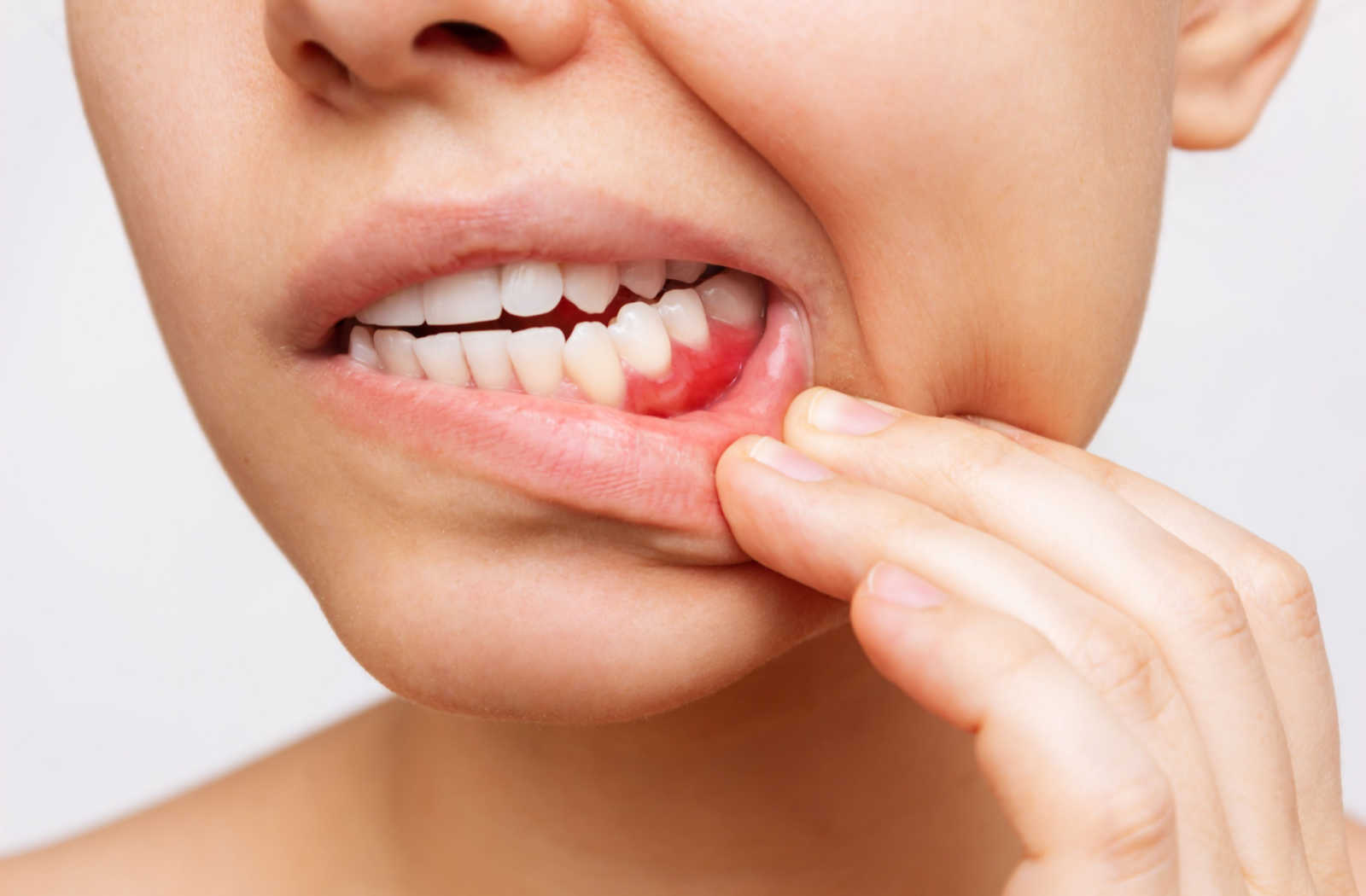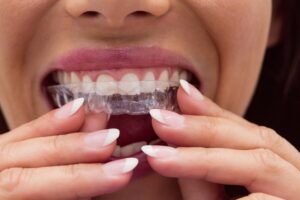When you floss your teeth and see that your gums are bleeding, it can be a little scary. No one likes to see blood, especially when it’s coming from their own mouth. If you notice pink in the sink after rinsing your mouth, you might start to worry.
So, what’s going on? Should you be concerned?
Here’s the simple truth: it’s not normal for healthy gums to bleed every time you floss. Regardless of your teeth not being perfect, your gums may sometimes bruise but if you floss, and your gums bleed, there might be another issue to consider.
The Main Reason: Why Do Gums Bleed When Flossing
The most common reason why gums bleed when flossing is that you’re not flossing regularly. If someone asks you how often you floss and you feel a bit embarrassed, that might be why your gums bleed. Not flossing every day is a big reason for bleeding gums. When you skip flossing, your gum health suffers because bacteria, tartar, and plaque start to build up along your gum line. This buildup can cause gingivitis, which makes your gums irritated, swollen, and more likely to bleed when you floss or brush.
This problem can happen quickly if you’re not taking care of your teeth regularly. If gingivitis isn’t treated, it can turn into periodontal (gum) disease, a much more serious condition that can affect both your mouth and your overall health. The good news is that if you floss regularly, you can prevent bleeding gums and keep your gums healthy.
Other Reasons for Bleeding Gums
While gingivitis is the most common reason why gums bleed when flossing, it’s not the only reason. There are other things that could be causing the problem:
- Flossing Technique: One reason why gums bleed when flossing could be that you’re not flossing the right way. If you floss incorrectly, it can cause bleeding gums. To floss the right way, start with about 24 inches of floss. Wrap the floss around your middle fingers, leaving about 2 inches to work with. This should be done with one hand using the thumb and the index finger to pull the floss taut. Slide the floss up and down in the curve of each tooth, avoiding snugging the floss into the gum line.
- Your Toothbrush: Brushing your teeth is very important for keeping your gums healthy, but if you use the wrong toothbrush or brush too hard, it can make your gums bleed. If you press too hard when you brush, it can cause your gums to bleed. To avoid this, hold your toothbrush at a 45-degree angle to your gum line and use short, gentle strokes on all sides of your teeth. If you know you brush too hard, you might want to use an electric toothbrush with a pressure sensor or intensity control. It’s also important to use a soft-bristle toothbrush because hard bristles can hurt your gums. Remember to replace your toothbrush when the bristles start to wear out. An old toothbrush with frayed bristles might cause you to press harder when brushing, which can lead to bleeding gums.
- Hormonal Changes: In addition, hormonal fluctuations are also attributed to the reason why gums bleed when flossing. If you are a female, you have a menstrual cycle: when you are on your period, your hormones vary and the increase in the level of the hormone progesterone, causes more blood to be supplied to the gums, making them swollen and likely to bleed. This can also happen if you’re taking birth control, are pregnant, going through menopause, or during puberty. These hormonal changes can affect your blood vessels and how your body responds to germs, leading to bleeding gums even if you don’t have a lot of bacteria and plaque on your teeth.
- Puberty: Since hormonal changes during puberty can make gums delicate hence the development of bleeding gums. It does not help either that children at this age may not be very vigilant with his or her brushing and flossing.
- Medical Issues: It is a fact that bleeding gums could often be a sign that one has some health problem that has nothing to do with the teeth. If you’ve been flossing regularly for a long time and suddenly notice bleeding gums, it’s a good idea to see your dentist or a periodontist. Bleeding gums can be a sign of a health condition like diabetes, especially if it’s not well-controlled or hasn’t been diagnosed yet. It is also important that you know that other diseases such as leukemia and hemophilia cause gum problems. Not getting enough vitamins C or K can also cause bleeding gums. Vitamin C is important for healing and keeping your bones and teeth strong, while vitamin K helps your blood to clot properly.

How to Stop Bleeding Gums
The best way to stop bleeding gums is to make sure you floss and clean your teeth every day, especially near your gum line. Unfortunately, less than one in three adults floss daily, which isn’t good because flossing is the best way to remove plaque and other stuff that can irritate your gums and make them bleed.
If you start flossing every day, bleeding gums should stop within a few weeks as your gums get healthier. It only takes a few minutes each day to take better care of your teeth. Flossing daily helps reduce gum inflammation and improves gum health.
Along with daily flossing, it’s also important to get your teeth cleaned by a professional twice a year. It also minimizes the chance of formation of dental stains, plaques, and tartars; and gives the dentist an opportunity to determine the overall health of your gums. Just in case you are one of those who are troubled by bleeding gums, do not hesitate to consult your dentist.
Key Takeaways
You can stop bleeding gums by flossing every day, brushing the right way, and paying attention to any changes in your body that might affect your gums. If you floss every day, you’ll see a big difference in how your gums look and feel. Taking just a few minutes each day to care for your teeth can have a big impact on your health. Why do gums bleed when flossing? Often, it’s because of a lack of a good oral hygiene routine. By flossing daily, brushing properly, and keeping an eye on any health or hormonal issues, you can greatly reduce bleeding gums. With regular care, you can keep your gums healthy and your smile bright.







